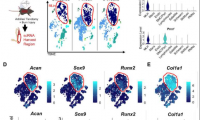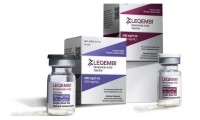-
Researchers discover critical protein for common bone growth disorder
- Source: drugdu
- 145
- April 19, 2023
-
EPA proposes new ethylene oxide rules for medical device sterilization
- Source: drugdu
- 235
- April 19, 2023
-
Pre- and post-surgical immunotherapy-based treatment significantly improved lung cancer outcomes
- Source: drugdu
- 124
- April 18, 2023
-
Higher Paxlovid uptake in winter 2022 could have prevented nearly 5,000 deaths
- Source: drugdu
- 105
- April 17, 2023
-
To protect kids from tobacco, pediatricians say, focus should be on quitting – or never starting
- Source: drugdu
- 127
- April 17, 2023
-
Spherix
- Source: drugdu
- 134
- April 14, 2023
-
Appeals court rules abortion drug can stay on market — but limits access
- Source: drugdu
- 193
- April 14, 2023
-
A Future Without Screening Colonoscopies?
- Source: drugdu
- 121
- April 12, 2023
-
US health officials aim to ‘transform’ Alzheimer’s disease research with $300 million data platform
- Source: drugdu
- 144
- April 12, 2023
-
GSK will have to pay additional royalties to AstraZeneca on cancer drug Zejula
- Source: drugdu
- 159
- April 6, 2023
your submission has already been received.
OK
Subscribe
Please enter a valid Email address!
Submit
The most relevant industry news & insight will be sent to you every two weeks.










